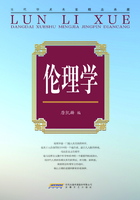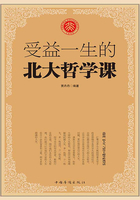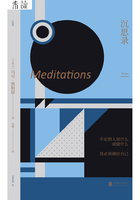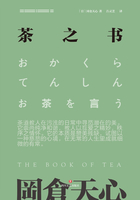Soc. What a very amusing notion! But I think, my young man, that youare much mistaken in your friend if you imagine that he is frightened at a little noise; and possibly, you think that his assailant was in earnest?
Phaedr. I thought, Socrates, that he was. And you are aware that the greatest and most influential statesmen are ashamed of writing speeches and leaving them in a written form, lest they should be called Sophists by posterity.
Soc. You seem to be unconscious, Phaedrus, that the ”sweet elbow” of the proverb is really the long arm of the Nile. And you appear to be equally unaware of the fact that this sweet elbow of theirs is also a long arm. For there is nothing of which our great politicians are so fond as of writing speeches and bequeathing them to posterity. And they add their admirers" names at the top of the writing, out of gratitude to them.
Phaedr. What do you mean? I do not understand.
Soc. Why, do you not know that when a politician writes, he begins with the names of his approvers?
Phaedr. How so?
Soc. Why, he begins in this manner: ”Be it enacted by the senate, the people, or both, on the motion of a certain person,” who is our author; and so putting on a serious face, he proceeds to display his own wisdom to his admirers in what is often a long and tediouscomposition. Now what is that sort of thing but a regular piece ofauthorship?
Phaedr. True.
Soc. And if the law is finally approved, then the author leaves the theatre in high delight; but if the law is rejected and he is done out of his speech-making, and not thought good enough to write, then he and his party are in mourning.
Phaedr. Very true.
Soc. So far are they from despising, or rather so highly do they value the practice of writing.
Phaedr. No doubt.
Soc. And when the king or orator has the power, as Lycurgus or Solon or Darius had, of attaining an immortality or authorship in a state, is he not thought by posterity, when they see his compositions, and does he not think himself, while he is yet alive, to be a god?
Phaedr. Very true.
Soc. Then do you think that any one of this class, however ill-disposed, would reproach Lysias with being an author?
Phaedr. Not upon your view; for according to you he would be casting a slur upon his own favourite pursuit.
Soc. Any one may see that there is no disgrace in the mere fact of writing.
Phaedr. Certainly not.
Soc. The disgrace begins when a man writes not well, but badly.
Phaedr. Clearly.
Soc. And what is well and what is badly-need we ask Lysias, or any other poet or orator, who ever wrote or will write either a political or any other work, in metre or out of metre, poet or prose writer, to teach us this?
Phaedr. Need we? For what should a man live if not for the pleasures of discourse? Surely not for the sake of bodily pleasures, which almost always have previous pain as a condition of them, and therefore are rightly called slavish.
Soc. There is time enough. And I believe that the grasshoppers chirruping after their manner in the heat of the sun over our heads are talking to one another and looking down at us. What would they say if they saw that we, like the many, are not conversing, but slumbering at mid-day, lulled by their voices, too indolent to think? Would they not have a right to laugh at us? They might imagine that we were slaves, who, coming to rest at a place of resort of theirs, like sheep lie asleep at noon around the well. But if they see us discoursing, and like Odysseus sailing past them, deaf to their siren voices, they may perhaps, out of respect, give us of the gifts which they receive from the gods that they may impart them to men.
Phaedr. What gifts do you mean? I never heard of any.
Soc. A lover of music like yourself ought surely to have heard the story of the grasshoppers, who are said to have been human beings inan age before the Muses. And when the Muses came and song appeared they were ravished with delight; and singing always, never thought of eating and drinking, until at last in their forgetfulness they died. And now they live again in the grasshoppers; and this is the return which the Muses make to them-they neither hunger, nor thirst, but from the hour of their birth are always singing, and never eating or drinking; and when they die they go and inform the Muses in heaven who honours them on earth. They win the love of Terpsichore for the dancers by their report of them; of Erato for the lovers, and of the other Muses for those who do them honour, according to the several ways of honouring them of Calliope the eldest Muse and of Urania who is next to her, for the philosophers, of whose music the grasshoppers make report to them; for these are the Muses who are chiefly concerned with heaven and thought, divine as well as human, and they have the sweetest utterance. For many reasons, then, we ought always to talk and not to sleep at mid-day.
Phaedr. Let us talk.
Soc. Shall we discuss the rules of writing and speech as we were proposing?
Phaedr. Very good.
Soc. In good speaking should not the mind of the speaker know the truth of the matter about which he is going to speak?
Phaedr. And yet, Socrates, I have heard that he who would be anorator has nothing to do with true justice, but only with that whichis likely to be approved by the many who sit in judgment; nor with the truly good or honourable, but only with opinion about them, and that from opinion comes persuasion, and not from the truth.
Soc. The words of the wise are not to be set aside; for there is probably something in them; and therefore the meaning of this saying is not hastily to be dismissed.
Phaedr. Very true.
Soc. Let us put the matter thus:-Suppose that I persuaded you to buy a horse and go to the wars. Neither of us knew what a horse was like, but I knew that you believed a horse to be of tame animals the one which has the longest ears.
Phaedr. That would be ridiculous.
Soc. There is something more ridiculous coming:-Suppose, further, that in sober earnest I, having persuaded you of this, went and composed a speech in honour of an ass, whom I entitled a horse beginning: ”A noble animal and a most useful possession, especially in war, and you may get on his back and fight, and he will carry baggage or anything.”
Phaedr. How ridiculous!
Soc. Ridiculous! Yes; but is not even a ridiculous friend better than a cunning enemy?
Phaedr. Certainly.















